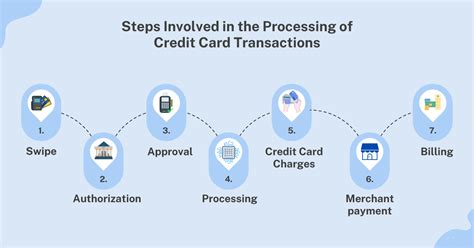Introduction

Loan sharks, or illegal money lenders, pose a significant threat to the financial well-being of individuals in Singapore. Their predatory practices, exorbitant interest rates, and aggressive tactics can trap unsuspecting borrowers in a cycle of debt and desperation. According to the Singapore Police Force, there were over 1,000 cases of unlicensed moneylending reported in 2021, resulting in losses amounting to more than SGD 20 million.
Understanding how to deal with loan sharks effectively is crucial for protecting oneself from their harmful clutches. This article provides comprehensive strategies, authoritative data, and expert advice to empower individuals in overcoming the challenges posed by loan sharks.
1. Recognizing the Red Flags of Loan Sharks
Common Mistakes to Avoid
- Borrowing from unlicensed moneylenders: Loan sharks often operate without proper licenses from the Ministry of Law. Borrowers may be enticed by their quick and easy approval process, but doing so can have severe consequences.
- Unable to provide necessary documents: Legitimate lenders will typically require proof of income, employment status, and residential address before approving a loan. Loan sharks, on the other hand, may not request these documents, which is a red flag.
- Unusually high interest rates: Loan sharks charge exorbitant interest rates that can range from 10% to 20% per month, far exceeding the legal limit of 4% per month.
- Intimidation or threats: Loan sharks are known for using aggressive tactics to collect debts, such as harassment, threats, and even violence.
How to Protect Yourself
- Verify the lender’s license: Contact the Ministry of Law to confirm that the lender is licensed and regulated.
- Obtain a loan agreement: Ensure that a written loan agreement is provided before borrowing any money. The agreement should clearly outline the loan amount, interest rates, repayment terms, and consequences of default.
- Beware of hidden fees: Loan sharks may charge additional fees, such as processing fees, late payment fees, and administrative fees. These fees can increase the overall cost of the loan significantly.
- Seek professional advice: If you are considering borrowing money from a moneylender, seek advice from a trusted financial advisor or lawyer to ensure that you are not dealing with a loan shark.
2. Reporting Loan Sharks to the Authorities
Why You Should Report Loan Sharks
- Protect yourself and others: Reporting loan sharks helps law enforcement authorities track down and prosecute these criminals, reducing their ability to harm others.
- Break the cycle of debt: Loan sharks rely on borrowers to keep their business running. By reporting them, you can help break the cycle of debt and protect vulnerable individuals.
- Uphold the law: Unlicensed moneylending is a criminal offense in Singapore. Reporting loan sharks helps hold them accountable and uphold the law.
How to Report Loan Sharks
- Contact the Police: Call the Singapore Police Force hotline at 1800-255-0000 to report suspected loan shark activities.
- File a police report: You can also file a police report at your nearest police station.
- Anonymous reporting: If you fear retaliation, you can make an anonymous report through the X-Ah Long app developed by the Singapore Police Force.
- Loan Shark Helpline: Call the Loan Shark Helpline at 1800-325-7624 for confidential advice and assistance.
3. Seeking Help from Support Organizations
Available Resources
- Credit Counselling Singapore (CCS): CCS provides free and confidential credit counselling services to individuals struggling with debt. They can help negotiate with creditors, develop a debt repayment plan, and provide support and guidance.
- Financial Counselling Singapore (FCS): FCS offers financial counselling, education, and support to individuals facing financial difficulties. They can help with budgeting, managing debt, and improving financial literacy.
- Legal Aid Bureau (LAB): LAB provides free legal advice and representation to individuals in need. They can assist with legal matters related to debt recovery, unlicensed moneylending, and bankruptcy.
How to Access Support
- Contact the organizations directly: Visit their websites or call their hotlines to get in touch with a counsellor or advisor.
- Referrals from social service agencies: Social service agencies such as the Social Service Office and Community Development Councils can provide referrals to support organizations.
- Community outreach programs: Support organizations may conduct outreach programs in the community, such as financial literacy workshops and debt management seminars.
4. Managing Debt and Rebuilding Financial Health
Creating a Debt Repayment Plan
- Consolidate your debts: Consider consolidating multiple debts into a single loan with a lower interest rate. This can simplify your repayments and reduce the overall cost of your debt.
- Negotiate with creditors: Contact your creditors and explain your situation. In some cases, they may be willing to negotiate a reduced interest rate or extend the repayment period.
- Seek debt relief options: If you are unable to repay your debts, you may consider exploring debt relief options such as debt consolidation schemes, debt restructuring, or bankruptcy.
Improving Financial Literacy
- Attend financial education programs: Support organizations and financial institutions offer financial education programs that can help you improve your financial literacy.
- Read financial books and articles: There are numerous resources available to help you understand financial concepts, budgeting, and debt management.
- Seek advice from financial experts: Consult with a financial advisor or credit counsellor to get personalized guidance and support.
Conclusion
Dealing with loan sharks in Singapore requires a multifaceted approach that involves recognizing the red flags, reporting them to the authorities, seeking help from support organizations, and managing debt effectively. By taking these steps, individuals can protect themselves from the harmful practices of loan sharks and rebuild their financial health. Remember, you are not alone in this challenge. Help is available, and with determination and support, you can overcome the challenges posed by loan sharks and achieve financial stability.
Additional Resources
Tables
| Table 1: Loan Shark Statistics in Singapore | |
|---|---|
| Year | Number of Cases |
| 2021 | 1,000+ |
| 2020 | 800+ |
| 2019 | 700+ |
| Table 2: Common Mistakes to Avoid | |
|---|---|
| Mistake | Consequence |
| Borrowing from unlicensed moneylenders | Exorbitant interest rates, threats of violence |
| Failing to obtain a loan agreement | Lack of clarity on loan terms and consequences |
| Paying high fees | Increased cost of borrowing |
| Seeking advice from unreliable sources | Misinformation and financial loss |
| Table 3: Support Organizations for Loan Shark Victims | |
|---|---|
| Organization | Services |
| Credit Counselling Singapore (CCS) | Free credit counselling, debt negotiation, support |
| Financial Counselling Singapore (FCS) | Financial counselling, education, support |
| Legal Aid Bureau (LAB) | Free legal advice and representation |
| Table 4: Strategies for Managing Debt | |
|---|---|
| Strategy | Benefit |
| Debt consolidation | Simplified repayments, reduced interest rates |
| Negotiating with creditors | Reduced interest rates, extended repayment periods |
| Exploring debt relief options | Reduced debt burden, financial stability |












